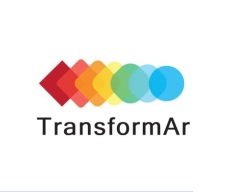Dr. Stelios Karozis is a Research Associate at National Centre for Scientific Research “Demokritos” (NCSRD). He holds a Chemical Engineer diploma (5-years) (2010) and a MSc degree in Computational Mechanics (2013) from National Technical University of Athens (NTUA), a Doctorate degree in Molecular Simulation (2017) from University of Crete and a MSc degree in Data Science (2021) from University of Peloponnese. His research interests are focus in modelling physical systems using deterministic, stochastic and data-driven techniques. He is also an expert in High Performance Computing (HPC) research and development with experience in the installation and management of HPC infrastructure (both in terms of hardware and software), as well as in the dissemination of HPC best practices in academia and industry. He is also one the developers and the administrator of EREL’s HPC computational infrastructure comprising of up to 500 CPU cores and 4 Tesla GPUs with up to 63 TFlops theoretical performance of single precision calculations.
In the last 10 years he has been involved in a number of national and EU funded projects mainly in the area of climate modelling and climate adaptation. He is also collaborating with the Institute of Informatics and Telecommunication (IIT) at NCSRD in internal projects or in Europeans, such as EUROCC. His work has mainly focused on (a) improving the seasonal prediction (10 days to 3 months) of models, (b) climate simulations using Deep Learning and Big Data Analytics and (c) the use of the forecasting data to various application, such as risk assessment of infrastructures.
Currently, he is a member of Environmental Research Laboratory (EREL) and acting as the project coordinator in LIFE RESYSTAL and as the principal investigator (PI) in two other running EU projects (TransformAr, NEVERMORE)

Wildfires represent a significant challenge for both society and the economy. The EU-funded FirEUrisk project will develop, assess, and promote a science-based integrated strategy to improve existing wildland fire risk assessment, create efficient methods to reduce fire risk and adapt management str...

The LIFE RESYSTAL project’s main objective is to increase climate adaptation capacities and resilience of the European Health Infrastructure (EHI) and systems and related dependant critical infrastructures. To achieve this, the project will a) set the basis of a European Network for the climate adap...

The TranformAr project aims to develop and demonstrate products and services to launch and accelerate large-scale and disruptive adaptive process for transformational adaptation in vulnerable regions and communities across Europe. The 6 TransformAr lighthouse demonstrators face a common challenge: w...

NEVERMORE will develop an integrated common assessment framework consistent across scales for modelling, simulating and evaluating impacts and risks of climate change, as well as policy measures. The approach integrates information from physical modelling of impacts and risk analysis methodologies a...
